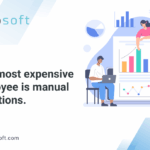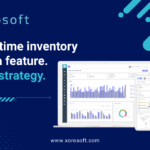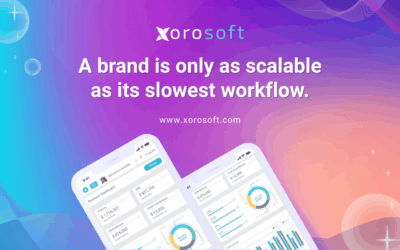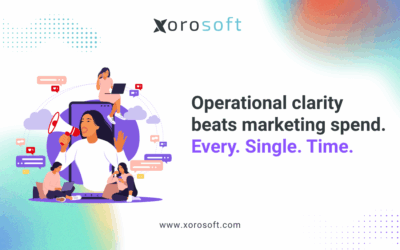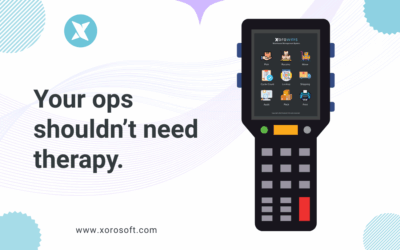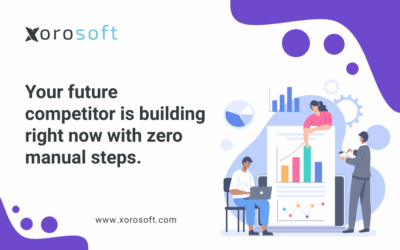
Introduction to ERP systems
Enterprise Resource Planning (ERP) systems have revolutionized the way businesses operate by integrating various processes and functions into a single, unified platform. These systems enable organizations to streamline their operations, enhance productivity, and gain a competitive edge in the market. XoroERP, developed by Xorosoft, is one such ERP solution that offers a wide range of features and functionalities. In this article, we will delve into the impact of quality management in XoroERP and analyze the pros and cons of implementing this ERP system.
Understanding the benefits of implementing an ERP system
Implementing an ERP system, such as XoroERP, can bring numerous benefits to an organization. One of the key advantages is improved efficiency and productivity. By automating manual processes and providing real-time data, XoroERP enables employees to perform their tasks more efficiently, thus saving time and reducing errors. Moreover, this ERP solution enhances collaboration and communication across departments, facilitating better decision-making and resource allocation.
Another significant benefit of implementing XoroERP is enhanced data accuracy and integrity. With all data stored in a centralized database, the chances of duplicate or inconsistent information are significantly reduced. This ensures that organizations have access to reliable and up-to-date data, enabling them to make informed decisions and respond swiftly to market changes.
Analyzing the pros and cons of implementing XoroERP
While the benefits of implementing XoroERP are substantial, it is essential to also consider the potential drawbacks. One of the primary advantages of this ERP system is its scalability. XoroERP offers customization options that allow businesses to tailor the software to their specific needs. Additionally, XoroERP can seamlessly integrate with other business systems, ensuring a smooth flow of information across various departments.
However, one potential drawback of implementing XoroERP is the initial cost. ERP systems, including XoroERP, require a significant investment in terms of software licenses, hardware, and implementation services. Moreover, organizations may also need to allocate resources for employee training and change management activities. It is crucial for businesses to carefully evaluate their budget and ROI expectations before deciding to implement XoroERP.
Exploring the features and functionalities of XoroERP
XoroERP offers a comprehensive suite of features and functionalities that help businesses streamline their operations and improve overall efficiency. One of the key features is its robust inventory management system. With XoroERP, organizations can track inventory levels, monitor stock movement, and optimize procurement processes. This ensures that businesses have the right amount of inventory at the right time, reducing carrying costs and minimizing stockouts.
Additionally, XoroERP simplifies accounting processes by automating financial transactions, generating accurate financial reports, and facilitating seamless reconciliation. The system integrates with various accounting modules, such as accounts payable and receivable, general ledger, and financial reporting, providing a holistic view of the organization’s financial health.
The impact of quality management in XoroERP
Quality management is a critical aspect of any ERP system, and XoroERP excels in this area. The system incorporates robust quality control mechanisms that enable businesses to monitor and improve their product and service quality. XoroERP provides tools for setting quality standards, conducting inspections, and tracking non-conformances. By implementing XoroERP, organizations can ensure that their products meet customer expectations and comply with industry regulations.
Moreover, XoroERP facilitates continuous improvement by enabling organizations to capture customer feedback, analyze performance metrics, and implement corrective actions. This ensures that businesses can identify areas for improvement, address customer concerns promptly, and enhance overall customer satisfaction.
How XoroERP improves inventory management
Efficient inventory management is crucial for businesses to meet customer demands while minimizing costs. XoroERP offers a range of features that optimize inventory management processes. The system provides real-time visibility into inventory levels, enabling businesses to make informed decisions regarding stock replenishment and order fulfillment. XoroERP also incorporates forecasting and demand planning tools, helping organizations anticipate future demand and optimize inventory levels accordingly.
Furthermore, XoroERP facilitates inventory tracking and control by implementing barcode scanning and RFID technologies. This enables businesses to accurately track the movement of inventory, reduce manual errors, and minimize the risk of stockouts or overstocking. By improving inventory management, XoroERP helps organizations reduce carrying costs, enhance order fulfillment rates, and improve customer satisfaction.
Streamlining accounting processes with XoroERP
Accounting is a critical function for businesses, and XoroERP simplifies this process by automating various accounting tasks. The system integrates with different accounting modules, such as accounts payable and receivable, general ledger, and financial reporting, ensuring accurate and up-to-date financial information. XoroERP eliminates the need for manual data entry and reduces the chance of errors, enabling businesses to streamline their accounting processes.
Additionally, XoroERP offers features like automated invoice generation, electronic payment processing, and bank reconciliation. These functionalities save time and effort for the finance team, allowing them to focus on more strategic activities. Moreover, XoroERP provides customizable financial reports, enabling businesses to analyze their financial performance and make informed decisions.
Integrating XoroERP with other business systems
XoroERP seamlessly integrates with other business systems, enabling organizations to have a unified view of their operations. The system can integrate with CRM software, allowing businesses to access customer data and provide personalized service. Moreover, XoroERP can integrate with e-commerce platforms, facilitating order processing and inventory updates in real-time.
Furthermore, XoroERP integrates with HR and payroll systems, enabling businesses to manage employee data, track attendance, and automate payroll processes. This integration ensures that employee information is synchronized across systems, reducing manual errors and enhancing data accuracy.
Customization options and scalability of XoroERP
XoroERP offers extensive customization options, allowing businesses to tailor the software to their specific needs. The system provides a range of modules and functionalities that can be configured to match the organization’s processes and workflows. This ensures that businesses can leverage the full potential of XoroERP and optimize their operations.
Moreover, XoroERP is highly scalable, making it suitable for businesses of all sizes. Whether an organization is a small startup or a large enterprise, XoroERP can accommodate its needs and grow alongside the business. The system can handle increasing data volumes, user traffic, and transactional demands, ensuring that businesses can scale without disruptions.
Choosing the right ERP solution for your business
When selecting an ERP system for your business, it is essential to consider various factors. Firstly, evaluate your organization’s specific requirements and processes. Identify the areas where an ERP system can bring the most significant benefits and address your pain points. This will help you determine the functionalities and modules that are crucial for your business.
Secondly, consider the scalability and flexibility of the ERP solution. Ensure that the system can accommodate your future growth and adapt to changing business needs. Additionally, assess the customization options and integration capabilities of the ERP system to ensure that it aligns with your existing systems and workflows.
Lastly, evaluate the reputation and track record of the ERP vendor. Look for customer reviews, case studies, and testimonials to gain insights into the vendor’s expertise and customer satisfaction levels. Consider partnering with a vendor like Xorosoft, who offers reliable support, regular updates, and continuous improvement of their ERP solution.
Conclusion: Is XoroERP the right choice for your business?
XoroERP, developed by Xorosoft, is a comprehensive ERP solution that offers a wide range of features and functionalities. The system enables businesses to streamline their operations, enhance efficiency, and improve overall productivity. With robust quality management mechanisms, XoroERP ensures that organizations can maintain high product and service quality, comply with industry regulations, and enhance customer satisfaction.
By improving inventory management processes, XoroERP helps businesses reduce carrying costs, optimize stock levels, and improve order fulfillment rates. Moreover, the system simplifies accounting processes, automating various tasks and ensuring accurate financial information. XoroERP seamlessly integrates with other business systems, providing a unified view of operations and enabling organizations to make informed decisions.
However, it is crucial for businesses to carefully evaluate their specific requirements, budget, and ROI expectations before implementing XoroERP. Consider factors such as customization options, scalability, and integration capabilities to determine if XoroERP is the right choice for your business. To learn more about XoroERP and its potential benefits for your organization, book a demo with Xorosoft today.
